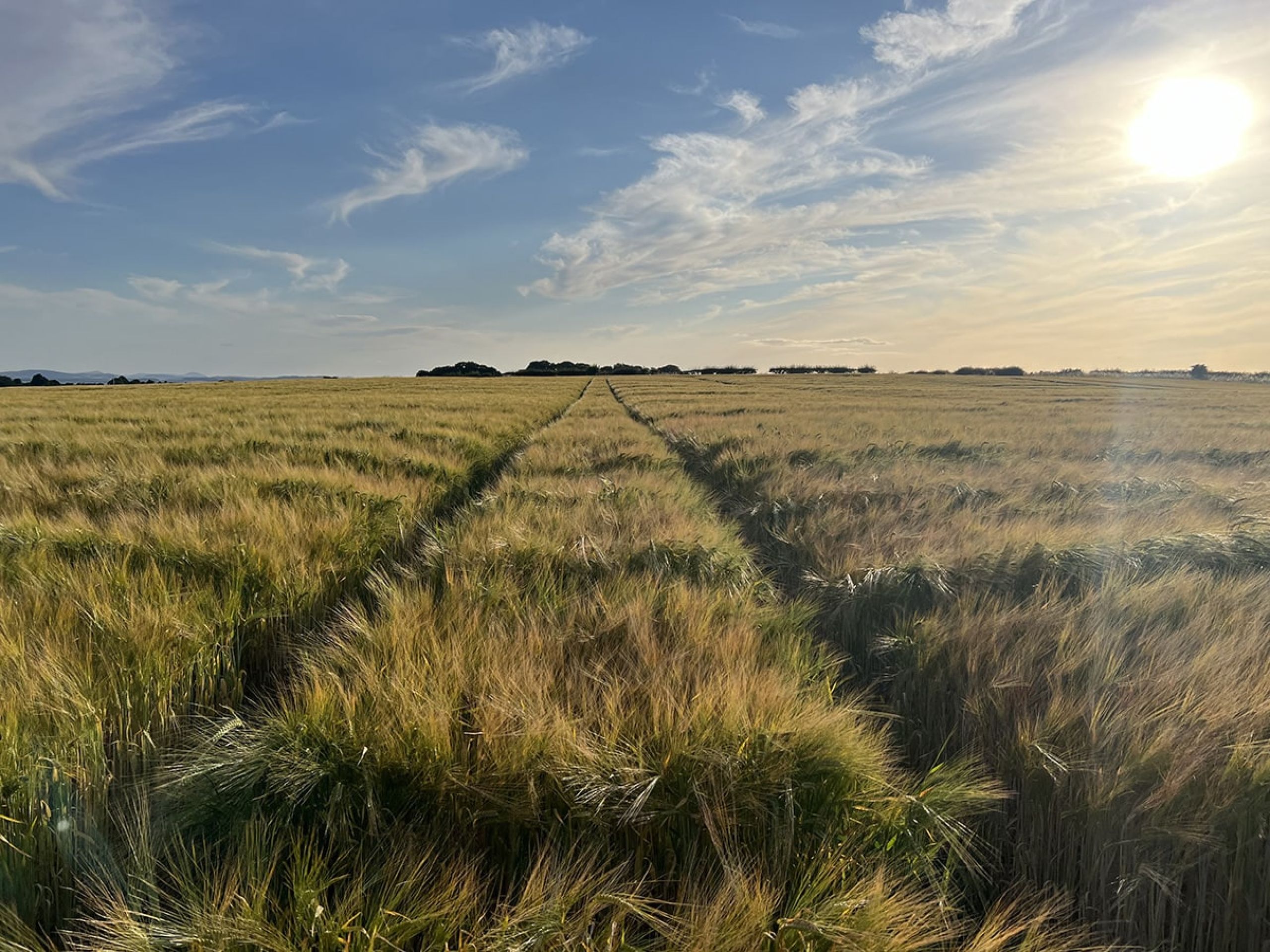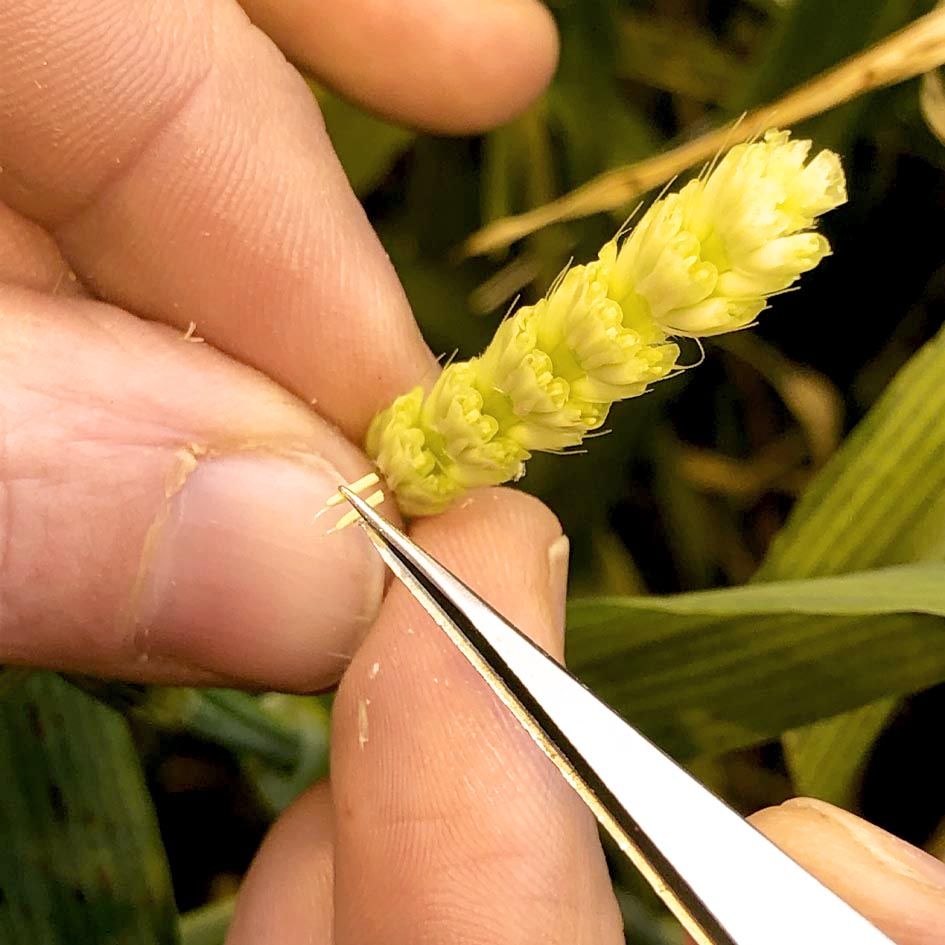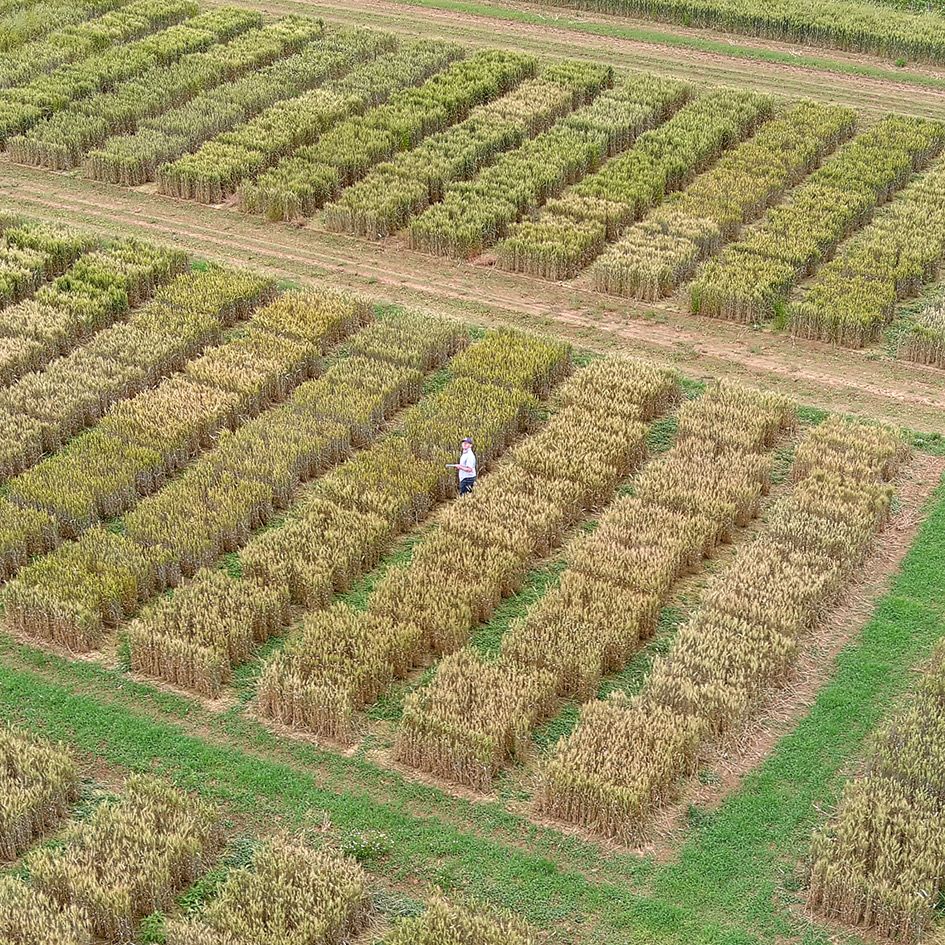
Our Activities
SECOBRA Research develops cereal breeding programmes adapted to changes in agriculture, farming practice, sectors and markets and the climate.
Development of Winter and Spring Barley, Winter and Spring Wheat & Triticale is our primary goal, which our teams carry out each year through our various breeding sites.
Varietal creation is the pillar of our company. For more than 100 years, SECOBRA Research has been supporting farmers and the industry in their search for varieties that meet several criteria: yield, agronomic stability and quality. These requirements are always adapting, and the breeder must adapt to these demands with the aim of meeting the challenges of agriculture today and tomorrow:

Yield progression in an environmentally sensitive way
Integrating genetic resistance in a sustainable way
Adapt varieties to climatic changes (maturity, disease pressue, pests) with increased yield stability
Meeting the expectations of the industry (quality, stability, cost reduction and sustainability)
The study of the genome allows us to better understand how plants work and helps selection to choose the most interesting varieties.
Thanks to molecular labelling, certain so-called simple agronomic traits can be preselected in the breeding material. This is particularly the case for certain resistances to pathogens such as barley dwarf yellows (BYDV), rhynchosporiosis and helminthosporiosis in barley or mosaic and foot rot in wheat. Thanks to modelling techniques based on genome analysis, it is now possible to work on other so-called complex agronomic traits, such as grain yield, grain quality, malting quality or bread-making quality.

Pre-breeding
We develop numerous programmes aimed at incorporating new and sustainable sources of resistance against diseases as well as quality criteria of interest to the sectors.

Screening
We observe our bloodlines across Europe and the world in order to select them in different pedo-climatic environments. It is thus possible to carry out a screening on several continents, with various agronomic constraints and varied sector requirements.
Selection is also a race against time: we use acceleration methods.
If varietal creation is demanding in terms of technical resources, it is also time-consuming. Many technologies have been developed in order to reduce the time interval between the first crosses and the registration of the variety. These acceleration methods are used internally at SECOBRA Research: haploid diploidization, SSD (Single Seed Descent) & off-season cultivation.
The scientific and agronomic projects of tomorrow
We remain attentive to our sector of activity and, in a quest for performance, we are involved in numerous public/private collaborative research projects such as the BreedWheat project, SARDI, SHAPE and ECOBREED. This involvement is the result of the desire to exchange and share skills that the SECOBRA Research teams demonstrate.
A laboratory that sets the benchmark
SECOBRA’s century-old laboratory is the only one to have the approval of the Syndicat de Paris du Commerce et de l’Industrie des Grains as part of the circuits organised by the BIPEA for varietal identification analyses on malting barley.
On this species, he has a collection of several hundred varieties of barley grown in France but also abroad.
Maule’s laboratory is also recognized by SEMAE, the national interprofessional seed group, to certify cereal seeds. The laboratory team carries out commercial analyses in the context of transactions between operators in the barley-malt-beer sector, seed analyses with the aim of certification on all straw cereals, as well as internal control analyses for the Selection and Production departments of SECOBRA Recherches.
